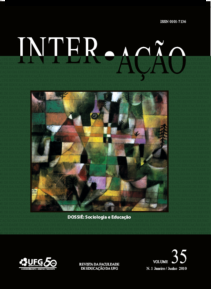EL DESARROLLO DE LA CALIDAD EN LA EDUCACIÓN SUPERIOR EN BUSCA DE SU RACIONALIDAD SISTEMICA
DOI :
https://doi.org/10.5216/ia.v35i1.13137Mots-clés :
Gestión de la calidad, Educación superiorRésumé
En el desarrollo de los procesos de gestión de la calidad en la educación superior pueden identificarse tres momentos distintos, a partir de la consideración de tres niveles sistémicos diferenciados (Macrosistemas, Sistemas institucionales, Microsistemas). En el artículo se analizan las incoherencias que se presentan actualmente en el manejo de la calidad en los distintos niveles sistémicos de la educación superior, debido a la extemporaneidad en el desarrollo de estos procesos, así como por la diversidad de intereses involucrados en su definición. Finalmente, se enfatiza en el desarrollo de la calidad en los microsistemas donde, mediante la reflexión del profesor sobre la calidad de su desempeño y la retroalimentación de estudiantes y pares académicos, es posible diseñar acciones para el perfeccionamiento continuo de la práctica académica.Téléchargements
Téléchargements
Publié-e
Comment citer
Numéro
Rubrique
Licence
A Inter-Ação utiliza como base para transferência de direitos a licença Creative Commons Attribution 4.0 para periódicos de acesso aberto (Open Archives Iniciative - OAI). Por acesso aberto entende-se a disponibilização gratuita na Internet, para que os usuários possam ler, baixar, copiar, distribuir, imprimir, pesquisar ou referenciar o texto integral dos documentos, processá-los para indexação, utilizá-los como dados de entrada de programas para softwares, ou usá-los para qualquer outro propósito legal, sem barreira financeira, legal ou técnica.
Autores que publicam neste periódico concordam com os seguintes termos:
1) Autores mantém os direitos autorais e concedem à revista o direito de primeira publicação, com o trabalho simultaneamente licenciado sob a Licença Creative Commons Attribution que permite o compartilhamento do trabalho com reconhecimento da autoria e publicação inicial nesta revista.
2) Autores têm autorização para assumir contratos adicionais separadamente, para distribuição não-exclusiva da versão do trabalho publicada nesta revista (ex.: publicar em repositório institucional ou como capítulo de livro), com reconhecimento de autoria e publicação inicial nesta revista.
3) Autores têm permissão e são estimulados a publicar e distribuir seu trabalho online (ex.: em repositórios institucionais ou na sua página pessoal) a qualquer ponto antes ou durante o processo editorial, já que isso pode gerar alterações produtivas, bem como aumentar o impacto e a citação do trabalho publicado.















